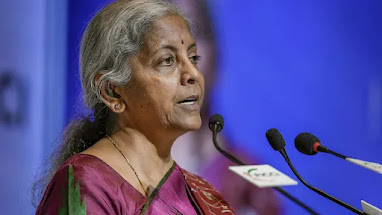FM Sitharaman says India prioritized national interest in importing cheaper fuel amid global commodity price spike.
India's
Finance Minister, Nirmala Sitharaman, has stated that India made decisions to
import cheaper fuel from Russia and other available sources to prioritize the
country's interest amid the recent spike in global commodity prices caused by
the Russia-Ukraine conflict. Russia's share in India's crude oil import basket
rose to a record 28% in January, compared with only 0.2% before the Russian
invasion of Ukraine in February 2022. With high commodity prices dampening
India's growth story and inflating inflation, India could not afford to abandon
Russia as a cheaper source of fuel, despite the tough economic sanctions
imposed on Russia by the US and its allies. Sitharaman noted that India did not
come under any pressure and made sure that affordable fuel reached India.
The
government also had to double the budget allocation on fertilizer subsidies to
insulate farmers from a sharp increase in global prices. Sitharaman highlighted
that when global fertilizer prices hit the roof, the Modi government faced the
spike in fertilizer prices in the last few years by enhancing the budget outlay
on subsidies to ensure that farmers were not starved of fertilizer that their
land needed. The total fertilizer subsidy bill estimated for FY23 is Rs 2.25
trillion, which is more than double the budget estimate of Rs 1.05 trillion and
the actual Rs 1.54 trillion (including dealer and manufacturer) in FY22.
Sitharaman
also discussed the importance of being prepared to deal with global economic
uncertainties, stating that being prepared is also a question of how much can
one predict what is going to happen, and even if one can't predict it, will you
be able to manage? The Modi government had to make provisions in the budget to
deal with the unforeseen spike in fertilizer prices. Overall, the government
has prioritized the country's interests in importing cheaper fuel and ensuring
that farmers are not deprived of essential fertilizers, even in the face of
global commodity price spikes caused by geopolitical conflicts.


